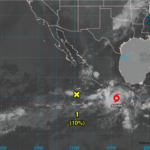Although only Congress has the authority to prohibit hydraulic fracturing on federal lands, an administration can still make the permitting process more difficult and costly. This issue has become a point of contention in the 2024 presidential campaign between Democrat nominee Vice President Kamala Harris and Republican opponent, former President Donald Trump.
It’s important to note that while a president cannot unilaterally ban fracking through executive order, they can impose regulatory constraints through their administration that could impact the industry. This could include making it more challenging and expensive for companies to obtain permits for fracking activities.
The power to ban fracking lies with Congress, and any such ban would only apply to federal public lands. This means that individual states, like Pennsylvania, where most fracking occurs on state and private lands, would not be affected by a federal ban.
Despite previous statements indicating support for banning fracking, Harris clarified during the campaign that she does not plan to do so. Instead, she emphasized the importance of balancing energy needs with environmental concerns.
While a president cannot unilaterally ban fracking, they do have the authority to regulate energy production within the confines of federal environmental laws and regulations. For example, past administrations have implemented rules and requirements for fracking activities on federal lands to ensure compliance with environmental standards.
Ultimately, the decision to ban fracking would require legislative action from Congress, and any regulations imposed by an administration would need to align with existing laws and regulations.
All About Rules and Regulations
The Biden administration withheld public land leases and delayed offshore leasing auctions for over two years until it revised regulations and fees for lease auctions.
Under the new rule, the minimum royalty rate for oil generated from federal lands also rose to 16.67 percent from 12.5 percent of revenue. It is comparable to royalty rates assessed by states and private landowners.
Those rates don’t affect current federal public lands and offshore leases, but will when they’re developed in the future, industry representatives such as Sgamma maintain.
Although a president doesn’t have the authority to ban fracking, some believe Harris, who said her stance on the issue is “pragmatic,” would increase regulatory scrutiny on oil and gas if elected.
“We would fully expect a Harris-Walz administration to sustain the Biden-Harris administration’s hostility” to fossil fuel development, Sgamma said.
Stanford University, Rob Jackson /AP Photo





